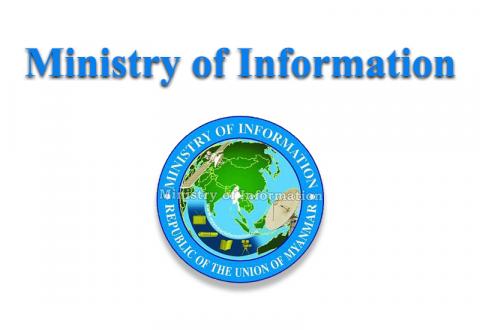Mark International Workers’ Day (May Day)
International Workers’ Day, or May Day, is a historic occasion born from the sacrifices of workers around the world who fought for their rights with their lives, blood, and sweat.
Like many other countries, Myanmar commemorates this important day each year on 1 May, recognizing the crucial role workers play in driving national economic development. Myanmar began officially celebrating International Workers’ Day on 1 May 1938.
May Day emerged as workers became conscious of their rights and took collective action to secure them. It has become a highly significant and invaluable day for the global working class. The history of this day is marked by hardship, perseverance, and the ultimate sacrifice of countless workers, making it a day of profound significance for the global working class. Following its independence in 1948, Myanmar joined the International Labour Organization (ILO), further committing to the promotion of workers’ rights.
In terms of work, there are two types: doing one’s own work for personal livelihood, and working for others in exchange for wages. Regardless of the type, physical and mental workers can be said to be those who invest their physical and mental strength with perseverance, diligence, effort, and goodwill, providing their labour to employers in order to sustain their lives. Among the workers of the world, they can be categorized into two types: blue-collar and white-collar workers.
Today, Myanmar places a growing emphasis on valuing the labour of farmers and workers, the two foundational classes of the nation. Efforts are being made to enhance production, promote workplace discipline, and ensure that workers receive fair benefits for their contributions. Awareness of workers’ rights and responsibilities has become increasingly clear and prominent in the modern era.
To foster healthy employer-employee relations, labour awareness programmes are regularly conducted across Union territories, regions, and states. These initiatives aim to enhance knowledge of leadership, supervision, labour laws, and policies among employers, workers, and their respective organizations. Labour affairs in Myanmar are addressed through a tripartite system of collaboration among the government, employers, and workers.
With the support and guidance of the Government, employers and workers are encouraged to foster mutual understanding and to work together with a spirit of unity, as one family. This approach is essential for improving workers’ lives, building a peaceful and prosperous society, strengthening employer-employee relations, and boosting overall economic development. So, present workers are responsible for handing down a good legacy to new generations.
#TheGlobalNewLightOfMyanmar

